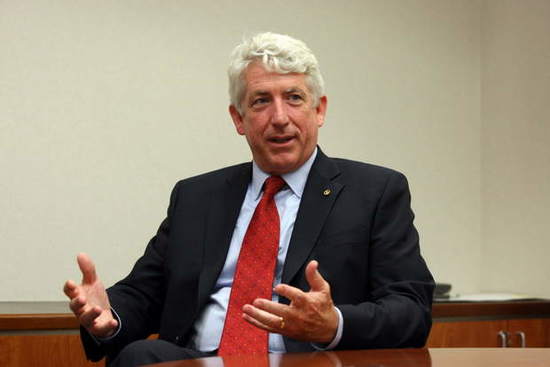In February, the fate of the Clean Power Plan (CPP) was put into question when the Supreme Court put a stay on the rule, pending a judicial review. With the upcoming administration change, the question mark has grown.
On December 28, those of us in Virginia learned bit about where our leadership stands when Attorney General Mark Herring affixed his name to an open letter to Donald Trump, urging him to “continue the federal government’s defense of the Clean Power Plan”.
By doing so, Attorney General Herring stands in solidarity with co-signers from nineteen other states and municipalities. The letter begins by focusing heavily on risks associated with climate change, citing specific examples of recent climate anomalies in the regions that many of the signees represent, including flooding in Hampton Roads, Virginia.
Attorney General Herring reiterated the scientific arguments that were upheld in federal court in 2007, when twelve states successfully sued the EPA for failing to regulate greenhouse gas emissions, a byproduct of fossil fuel energy, under the Clean Air Act. It was this ruling that ultimately led to the creation of the CPP. Donald Trump has been publically dubious of the mounting scientific evidence supporting man-made climate change, while his VP-elect has historically expressed a slightly greater willingness to “follow the science”.
The Attorney General of West Virginia, along with 17 co-signers issued an earlier letter to Mike Pence, urging the new administration to withdraw the CPP through executive action. While this letter made no mention of climate science, it did question the legality of the CPP. In the more recent letter, Herring and the co-signers respond to these legal questions, citing specific precedents, and then go on to challenge the legality of using an executive order to subvert the ongoing judicial review, as suggested in the letter to Pence.
The path of the CPP is becoming an interesting case study for those of us in the energy industry; we are all waiting to see how such an ambitious yet politically contentious policy will survive in a hostile administration. However, with continuing advancements in renewables, the bigger question remains: is renewable growth outpacing the need for the CPP? In their annual report, Bloomberg New Energy Finance analysts concluded that we are on track to meet the CPP goals with or without the law. As technologies like wind and solar get cheaper, fossil fuels simply make less economic sense.
While the relevancy of the CPP may be up for debate, Attorney General Herring, in signing the letter, spoke volumes about the direction of energy development here in Virginia. Lawmakers are recognizing the opportunities for cheap, safe energy and new jobs as the number of renewable projects in Virginia continues to grow; we at SolUnesco are excited to be doing our part.
Learn More About the Author Here


Leave A Comment